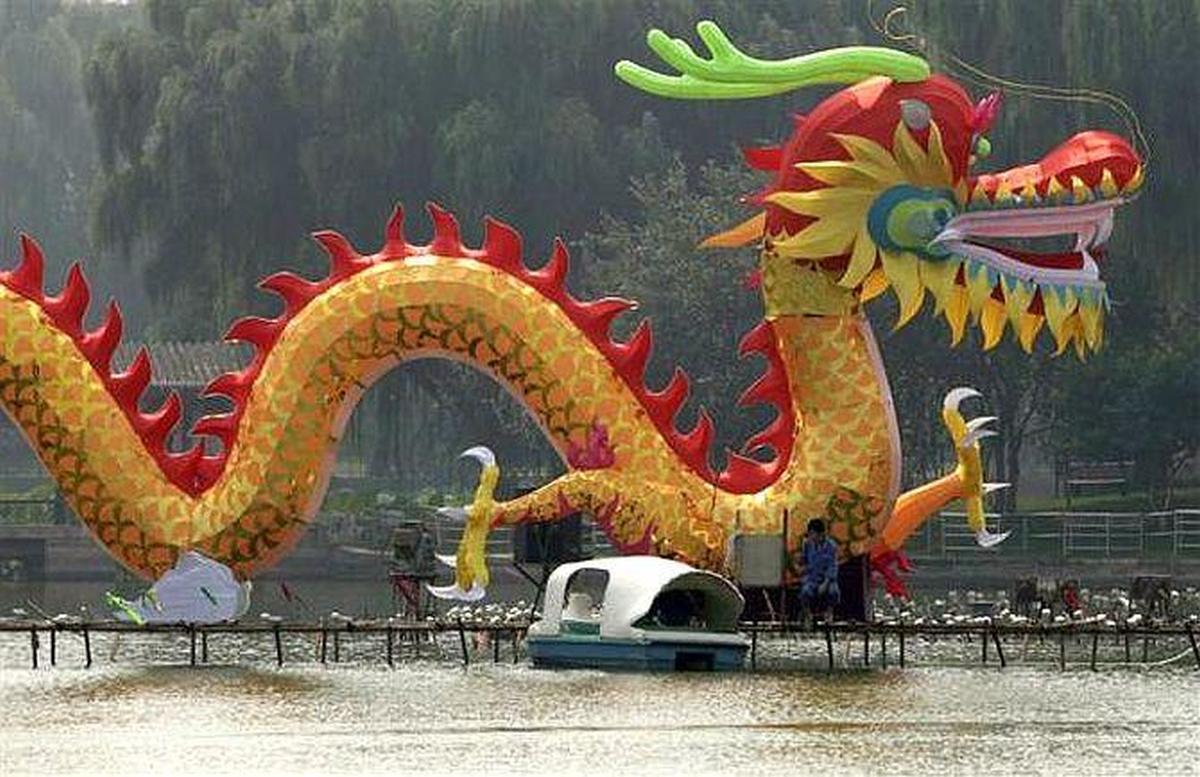Various industry bodies have sought immediate government intervention through the imposition of anti-dumping duties, claiming India has seen a surge in imports of Chinese goods over the past two weeks.

Photograph: Soo Hoo Zheyang/Reuters
Though the recent volume of most Chinese imports cannot be quantified at the moment, domestic players attribute the sudden spike to higher tariffs imposed by the Donald Trump administration in the US.
They said this was creating price disparities and oversupply issues that were hurting domestic manufacturers.
For instance, imported viscose staple yarn (VSY) is currently priced around Rs 13 per kilogram lower than its Indian counterpart.
Similarly, rubber gloves are reportedly being sold at a price difference of up to $8 per 1,000 units, while medical device imports have surged as much as 80 per cent across 12 key categories.
Sources from the toy industry have also reported a rise in imports of knocked-down kits from China, despite mandatory Bureau of Indian Standards (BIS) certification for such goods.
The Tamil Nadu Spinning Mills Association (TASMA) has already issued warnings about potential mill closures and job losses due to the unfair price structure created by cheaper Chinese VSY.
Due to the US-China tariff war going on strongly, China has started dumping VSY in India at a very low price of Rs 185 per kg versus the domestic VSY price of Rs 198 per kg.
Hence, we want immediate intervention of both textile and commerce ministries to enforce anti-dumping duties, said K Venkatachalam, chief advisor, TASMA.
Interestingly, imports of viscose staple fibre (VSF), which is the raw material for VSY, are already restricted under a quality control order (QCO), and dumping of knitted fabrics and polyester yarn/fabrics has also been curbed.
Hundreds of spinning mills are already under stress.
Unchecked imports could severely damage this sector, said Prabhu Dhamodharan, convenor of Indian Texpreneurs Federation.
In response to industry concerns, the government has set up a help desk to address issues arising from the tariff war, including dumping.
Among the industry players that have already approached the government to safeguard the domestic industry are the Indian Rubber Gloves Manufacturers Association (IRGMA) and the Association of Indian Medical Device Industry (AiMeD).
The IRGMA also raised concerns over the possible rerouting of low-quality gloves through third-party countries, such as Malaysia, Thailand, and Vietnam, where relabelling and repackaging obscure their origin and evade scrutiny.
On April 11, the IRGMA wrote to the Drugs Controller General of India Rajeev Raghuvanshi, warning of a significant risk of substandard dumping of gloves at under-invoiced, rejection-level prices.
It said China and other countries were holding excessive inventory of these non-BIS, phased-out chlorinated gloves and were actively looking for alternative destinations to liquidate stock in countries like India as a dumping ground.
With India not having an explicit, enforceable ban on gloves in bulk form, our ports and markets are at high risk of being used as a convenient disposal route for these unsafe products, it said.
IRGMA Spokesperson Vikas Anand said several unscrupulous importers were importing substandard and discarded gloves made in Malaysia into India even before the tariffs were announced by the US.
These players were bringing in these near-expiry or expired gloves, which were discarded by countries like the US, at $10-12 per 1,000 units, as against the international price of $18-20 per 1,000 pieces.
They were able to sell these in India for $15 per 1,000 pieces as such, thereby impacting the local industry, he said.
Meanwhile, the AiMeD called for safeguard duties as medical device imports surged 80 per cent.
It urged the government to impose safeguard duties on 12 key medical device categories, warning that uncontrolled imports were putting domestic manufacturers at risk.
Imports of critical medical devices have seen an unprecedented surge, particularly from China, Germany, Singapore, the US, and the Netherlands.
China alone accounts for 33.47 per cent of the total increase, which makes it the largest contributor to the pressure on India s domestic industry, the AiMeD said.
Among the sharpest increases, diagnostic reagent kit imports surged 23 per cent, with a 424 per cent jump from the Netherlands, followed by China (24 per cent), US (23 per cent), and Singapore (38 per cent).
Similarly, hollow needles for injection saw a 62 per cent increase, oxygen therapy devices spiked 36 per cent, and orthopaedic devices jumped 47 per cent, with Germany (295 per cent) and the US (87 per cent) driving the surge.



